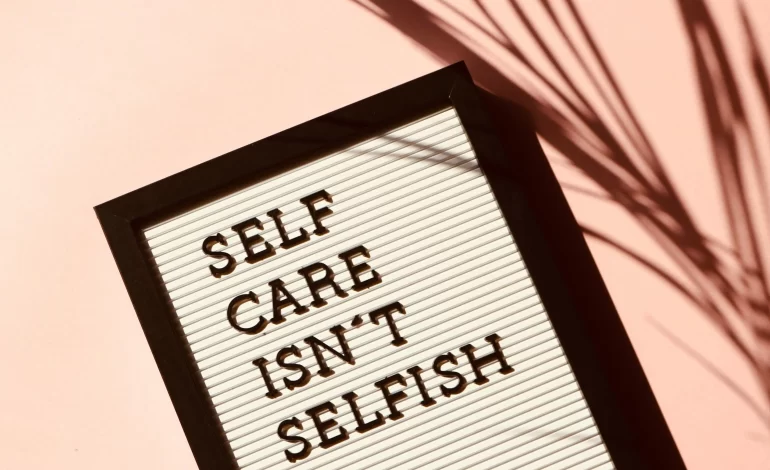Human Sexual Enlightenment In Core Areas Of The World
Human sexual enlightenment, a cornerstone of our existence, pulsates with the rhythm of cultural norms, religious beliefs, and ever-evolving social attitudes. Understanding how different regions approach sexual enlightenment, the intricate process of acquiring knowledge and comfort with intimacy, offers a fascinating window into the rich tapestry of human experience. This article embarks on a journey across core areas of the world, delving into the unique approaches, challenges, and ongoing dialogues surrounding this critical aspect of human development. Human Sexual Enlightenment: A Lifelong Journey Human sexual enlightenment is the process of acquiring knowledge, attitudes, and skills related to human sexuality. A complex interplay of factors shapes it as it unfolds throughout our lives: Culture and Religion: Cultural norms and religious beliefs significantly influence how societies approach sex education and sexual enlightenment. Some cultures are more open and direct, while others are more secretive or shame-based. Family and Upbringing: The messages we receive from our families about sex during childhood have a lasting impact. Open and honest communication fosters a healthy approach to sexuality, while shame and silence can create confusion and anxiety. Education and Information: Formal sex education plays a crucial role in providing young people with accurate information about sexual anatomy, reproduction, contraception, and healthy relationships. However, access to quality sex education varies widely around the world. Media and Technology: The internet and media bombard us with messages about sex, often unrealistic and distorted. Learning to critically evaluate these messages and discern between myth and reality is an important aspect of sexual enlightenment. Key Components of Sexual Enlightenment: Biological Knowledge: Understanding the human body, sexual anatomy, and physiology is fundamental. This includes knowledge about puberty, menstruation, sexual response, and reproduction. Sexual Health: Learning about sexually transmitted infections (STIs), contraception methods, and how to maintain healthy sexual practices is crucial. Relationships and Communication: Developing healthy communication skills is essential for navigating intimacy. Understanding consent, setting boundaries, and expressing needs are all important aspects of building fulfilling relationships. Positive Body Image: Developing a positive and healthy body image is key to enjoying intimacy. Recognising the beauty of diverse bodies and fostering self-acceptance are vital aspects of sexual enlightenment. Sexual Identity and Orientation: Understanding the spectrum of human sexuality, including sexual identities and orientations, is crucial for self-awareness and respecting others. Benefits of Sexual Enlightenment: Improved Sexual Health: Sexual enlightenment leads to safer sex practices, a reduction in unintended pregnancies, and a lower risk of STIs. Healthy Relationships: Understanding consent, communication, and healthy boundaries fosters more fulfilling and respectful relationships. Empowerment: Having knowledge about one’s body and sexuality empowers individuals to make informed choices about their lives. Reduced Stigma: Open and honest communication about sex challenges stigma and shame, promoting a healthier approach to sexuality for all. East Asia: A Fusion of Tradition and Modernity in Flux In East Asia, cultures traditionally prioritise collectivism and respect for elders. Consequently, sexual enlightenment has been a more veiled affair, with information often transmitted indirectly. The focus leans heavily towards procreation and fulfilling one’s familial obligations. For instance, the long-standing one-child policy in China emphasized responsible parenthood, which caused discussions about sex to focus more on reproductive health than on comprehensive sexual education. However, the tides of change are sweeping across the region. Rapid modernization and an upsurge in internet access have exposed younger generations to a more globalised perspective on sexuality. This has spurred a growing demand for comprehensive sexual education programmes. In response, some countries, like South Korea, have implemented mandatory sex education in schools. Additionally, the rise of LGBTQ+ activism is challenging traditional norms and pushing for greater inclusivity in conversations about sex. However, this progress isn’t without its hurdles. Traditional values still hold sway in many communities, creating friction between the desire for open dialogue and the lingering influence of more conservative viewpoints. The West: A Journey from Liberation to Nuance Western societies have historically navigated a tumultuous course when it comes to sexuality. Strict moral codes with a rigid emphasis on chastity were characteristic of the Victorian era in Europe and North America. The 20th century, however, witnessed a seismic shift with the sexual revolution, a movement that challenged traditional norms and championed individual exploration. Today, Western societies grapple with the complexities of this legacy. Comprehensive sexual education programs are becoming increasingly common, aiming to equip young people with the knowledge and skills to navigate intimacy safely and responsibly. However, new challenges have emerged in the digital age, including the prevalence of cybersex, sexting, and the often unrealistic portrayal of sexuality in media. These challenges necessitate ongoing discussions about ensuring healthy and informed sexual development in an increasingly digital world. Striking a balance between promoting exploration and fostering responsible behaviour remains a work in progress. Latin America: A Dance Between Faith and Passion Latin American cultures are renowned for their passionate embrace of life, often interwoven with deep Catholic traditions. Historically, sexual education in the region has been limited, with a primary focus on abstinence before marriage. However, this approach has been criticised for failing to equip young people with the knowledge needed to prevent unwanted pregnancies and sexually transmitted infections (STIs). This lacuna is being recognised. Countries like Colombia and Uruguay have spearheaded the movement by implementing progressive sexual education programs that address topics like consent, contraception, and LGBTQ+ identities. Additionally, religious institutions are increasingly involved in discussions about sexuality, seeking to reconcile faith with a more open and responsible approach towards intimacy. This dialogue is crucial in finding ways to nurture both faith and healthy sexual practices within communities. Africa: Navigating Change Amidst Deep-Rooted Traditions Africa presents a richly diverse landscape of sexual attitudes and practices. Many regions hold onto strong cultural traditions surrounding female circumcision, child marriage, and premarital sex. These practices are often deeply embedded within social structures, making them challenging to address. However, a growing awareness of the negative consequences of these practices, such as health risks for women and girls, is leading to a tide of change. Educational campaigns and community engagement initiatives
Read More



